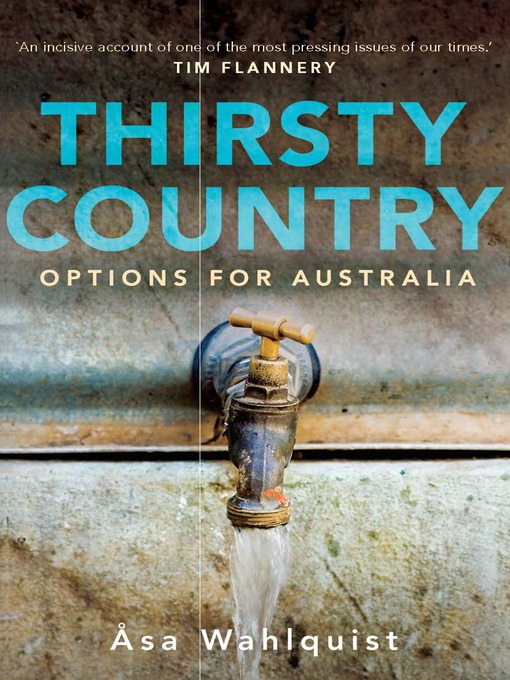A highly informative consumer's guide to the issues concerning fresh water in Australia today and in the future.
Australia is the driest inhabited continent in the world and current global warming forecasts are for it to become drier still but what do we do about it? Schemes abound but will they work, can we afford them and are there hidden consequences?
Few people know more about this issue than Asa Wahlquist, Rural Writer for The Australian. In Thirsty Country she lays the facts clearly before the reader. With no agenda other than to inform, Wahlquist explains how the various schemes work, or don't, their ramifications and their financial and environmental costs. She looks at ventures, small and large, that have worked, and ones that haven't. She exposes some of the stresses and strains between private water authorities and governments that can impede sensible development and she empowers the reader with useful practical advice that they can apply in the home, garden and on the land to reduce demand.

